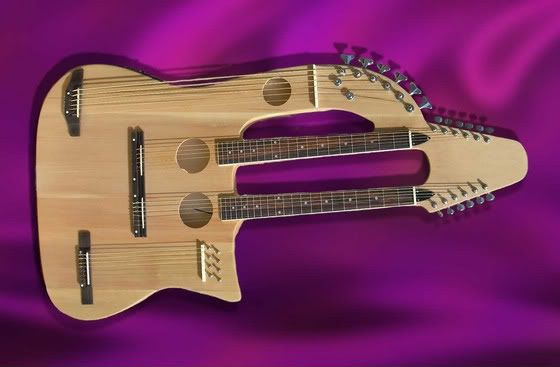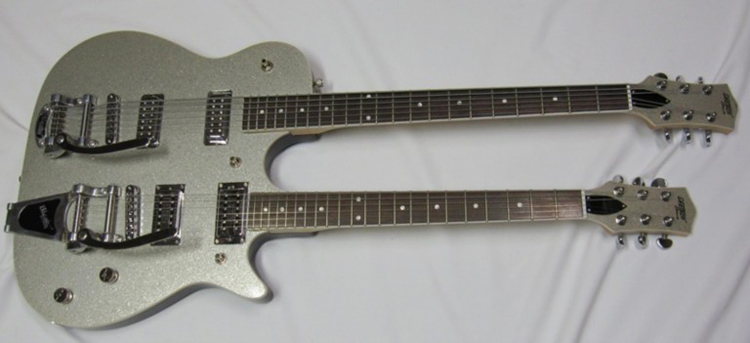
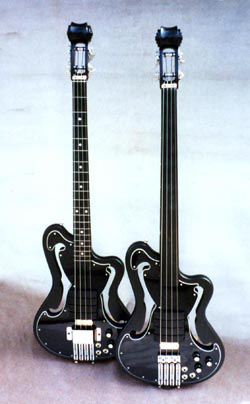 The first big pic shows bass amps builder Ampeg's first series of 'horizontal' basses, starting in 1966 - their previous and first instrument was the 1962 Baby Bass, a small body fiber glass/plastic double bass. There are 3 Scroll Bass models, let's keep the Devil Bass (center) for a future post ; the f-hole models are the 1966 AEB-1 (AUB-1 for the fretless version - the very first fretless electric bass), and its 1968 upgraded version the AMB-1/AMUB-1.
The first big pic shows bass amps builder Ampeg's first series of 'horizontal' basses, starting in 1966 - their previous and first instrument was the 1962 Baby Bass, a small body fiber glass/plastic double bass. There are 3 Scroll Bass models, let's keep the Devil Bass (center) for a future post ; the f-hole models are the 1966 AEB-1 (AUB-1 for the fretless version - the very first fretless electric bass), and its 1968 upgraded version the AMB-1/AMUB-1.The AEB-1/AUB-1 was designed to be appeal to upright bass players and featured a weird hidden pickup which was essentially a steel diaphragm over two magnetic coils set into epoxy. This meant that the bass could use gut strings. Notice also the way that the tailpiece extends beyond the body - this was so as to achieve the correct string angle over the hidden pickup.
Bruce Johnson's contemporary versions AEB-2/AUB-2 intend to be humble improvements of the original model, with the benefit of 40 years on electric lutherie. The few changes are meant to - as Johnson puts it - "bring the Scroll Bass design up to its full potential". That is definitely an instrument I'd love to play!

Eastwood's EEB-1 is also a quite faithful reproduction, a noticeable change is the slightly shorter lower f-hole and the pickguard curling around it, and of course you can see that the scroll headstock is gone. I can understand that a modern guitar needs to get rid of vintage oddities - and the replacement headstock has a good design - but you probably loose the feeling of playing a horizontal double bass...
Like Ampeg, Eastwood proposes also a fretless version, the EUB-1.

Now this is the Italia Imola 4 Deluxe in Cherry Sunburst. As you can see, the shape is the same but the two cut-through-body f-holes have been replaced by a more classical one (I actually read contradictory information about this f-hole, here it's called a "faux f-hole", there a "solid body f-hole", also this bass is said to have a "chambered solid body" but without "glued top", so something like vintage Rickenbackers... if someone knows more, it's welcome).
The big contoured pickguard is also there - without the lower f-hole - and the headstock is more classic (and very 60s - it looks like the one of my Musima ES-335 style bass). The pickups are completely different and are closer to a J-bass than to an Ampeg. This bass exists also fretless and/or 5-string.
No matter how much it betrays its Ampeg model, it's a beautiful instrument.

And finally this is the Italia Imola 6 Standard with which the all thing started. For this model Italia didn't try to reproduce a vintage model but extrapolated from their own interpretation of the Ampeg Scroll Bass. The result is a rounded Jaguar shape with a characteristic f-hole partially covered by a large pickguard. The 6 tuners in line headstock is inverted, that seems always to me the logical thing to do - the tuners have easier access and the tension suits better the different string gauges (and it's not only true for metal guitars).
Imola 6 doesn't only stand for 6 strings (as in Imola 4 or 5 for the 4- and 5-string basses) but mostly for the quite original 6 pickups - 3 vintage Teisco style split singlecoils. These pickups and the two 5-way levers allow many combinations - 25 -, some of which are probably quite original and must give this guitar a quite unique sound.
You can find a detailled review on musicradar.com and nothing on italiaguitars.com where the guitar is not even mentioned, though you can find it on their newer (I suppose) JHS website - where the bass models are completely missing... Italia people, please make some maintenance, it's confusing!
Italia is a brand created by Trevor Wilkinson - THE Wilkinson - and intends to combine vintage creativity (isn't it contradictory to look in the past for creativity?) and contemporary technical qualities.


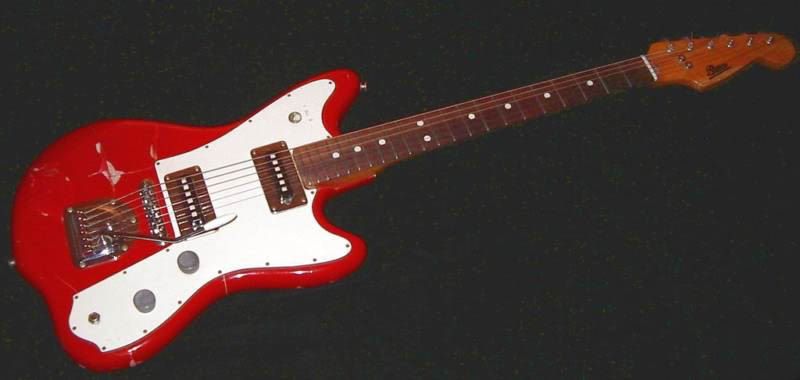

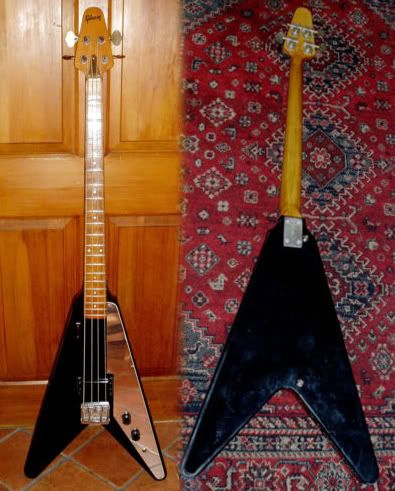

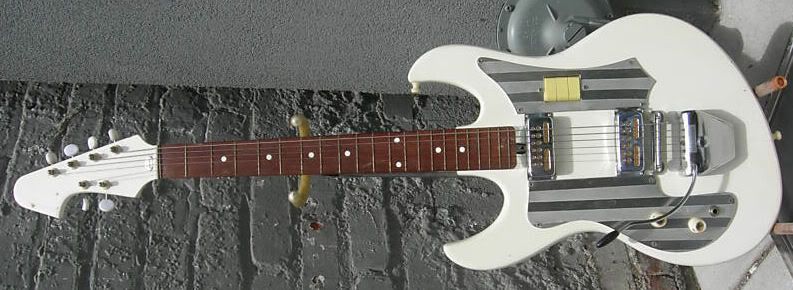
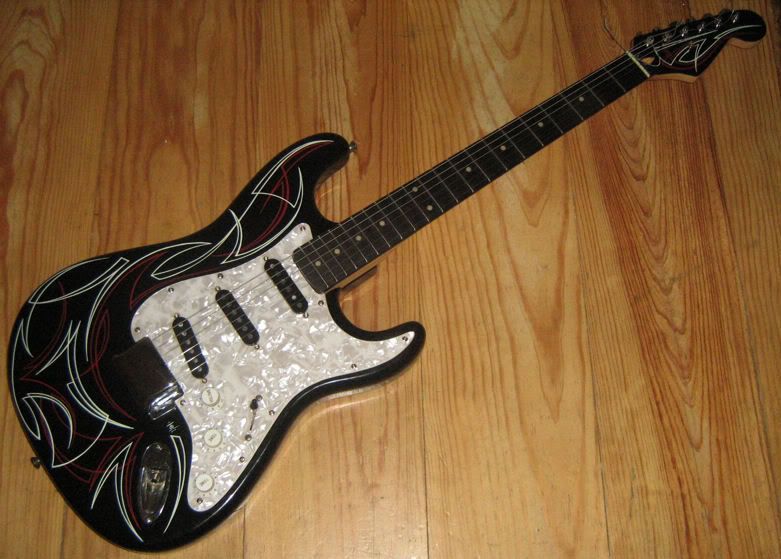

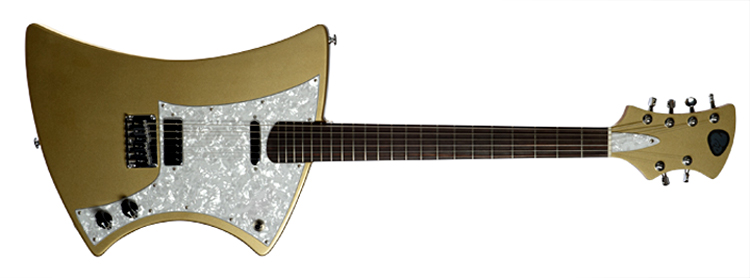
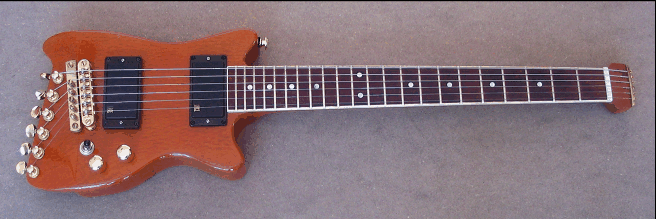

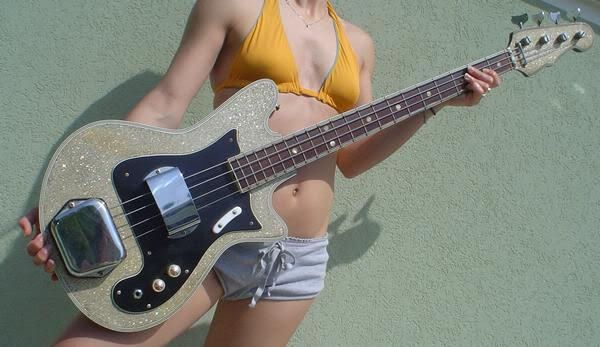
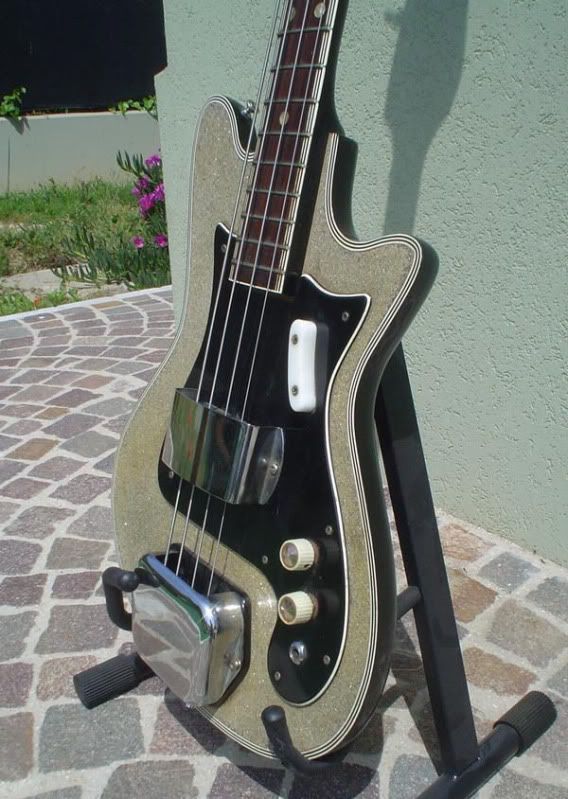
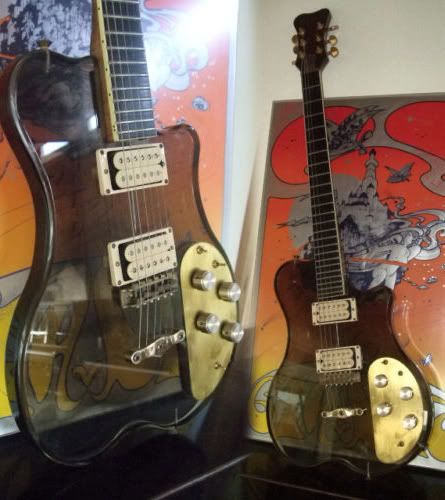
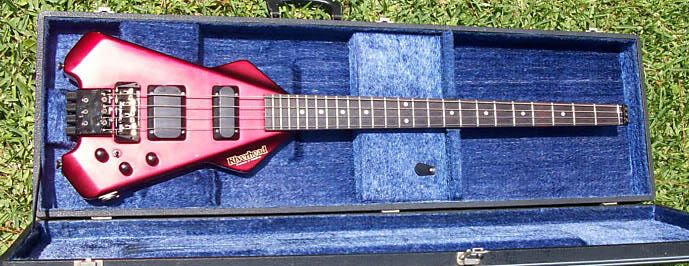
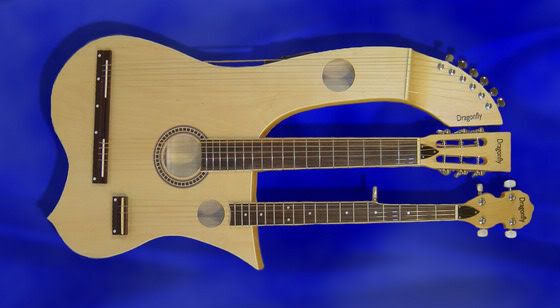
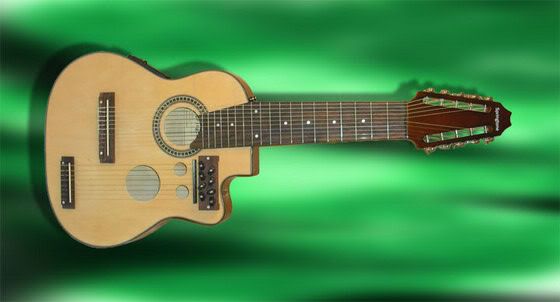 The 18-string Thing
The 18-string Thing
